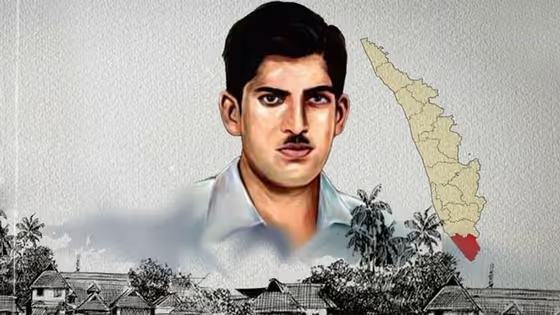
India@75: Vakkom Mohammed Abdul Khader, the Bhagat Singh of Kerala
Vakkom Mohammed Abdul Khader, also known as Vakkom Khader, was executed for being a part of Subhash Chandra Bose's Indian National Army for his motherland’s freedom. The brave youngster was known as Kerala’s Bhagat Singh.
"My dear father, my kind mother, my dear brothers and sisters,
I am bidding farewell to you forever. My humble death would occur before 6 am tomorrow. You will be pleased when you come to know from eyewitnesses how boldly and happily did I go the gallows. You will certainly be proud too..."

These are lines from the revolutionary's last letter to his family a few hours before he was hanged to death. This 26-year-old martyr was Vakkom Mohammed Abdul Khader, also known as Vakkom Khader. The revolutionary was executed for being a part of Subhash Chandra Bose's Indian National Army for his motherland's freedom. The brave youngster is known as Kerala’s Bhagat Singh.
Also Watch: India@75: Story of Komaram Bheem, the tribal who gave the 'Jal, Jungle, Zameen' slogan
Mohammed Abdul Khader was born in 1917 at Vakkom village near Thiruvananthapuram as the fourth son in an ordinary family. Keenly interested in music and football, Khader was also deeply attracted to the freedom movement.
He had been a student activist against Diwan Sir CP Ramaswami Iyer's autocratic rule. When Gandhi was travelling through Kerala, Khader managed to get into the compartment and kiss his hand.
At the age of 21, Khader sailed to Malaysia and joined the public works department there. But soon, he came in touch with the India Independence League, the organization of Indians in Malaysia working for India's freedom. Later, he joined the Indian National Army along with most others in the League. Khader was among the first batch of 50 cadets to be given military training at the Indian Swaraj institute set up by the INA in Panang, Malaysia.
September 18, 1942. Khader was chosen for a very important assignment. He was among the twenty-member squad selected to be sent to India to conduct an armed assault on the British installations. The squad was divided into two groups, with one to travel by submarine and the other over land.
Khader was in the submarine squad, which reached Indian shores after nine days in the sea. Khader and his group landed at Thanoor in Malappuram, Kerala, while the second group was at Dwaraka off the Gujarat coast. Taking them for Japanese spies, Khader and others were apprehended by the Malabar Special Police immediately after they landed and handed over to British authorities. They were all imprisoned in the Fort St George prison in Chennai, where they were subjected to brutal torture.
All the twenty soldiers, known as the Penang 20, were arrested and tried. Five among them were sentenced to death and others to various terms of imprisonment. Those awarded death penalties were Khader and his two compatriots from Kerala named Ananthan Nair and Boniface Pereira, Satyendra Chandra Bardhan from Bengal, and Fouja Singh from Punjab.
But on an appeal, Pereira was subsequently spared from execution. Khader and his friends were hanged in Madras Central prison on September 10, 1943. A few days before his execution, Khader wrote to Boniface:
My dear Boni,
Here are my last words as I am on my final journey. Our death will give way to the birth of many others. An innumerable number of brave people have already laid their lives for the freedom of our motherland. Compared to them, we are all mere candles in front of the full moon..."
Also Read: India@75: Jamshedji Nusserwanji Tata, the father of Indian Industry
Also Read: India@75: Barrister GP Pillai, most prominent Indian editor of the 19th century